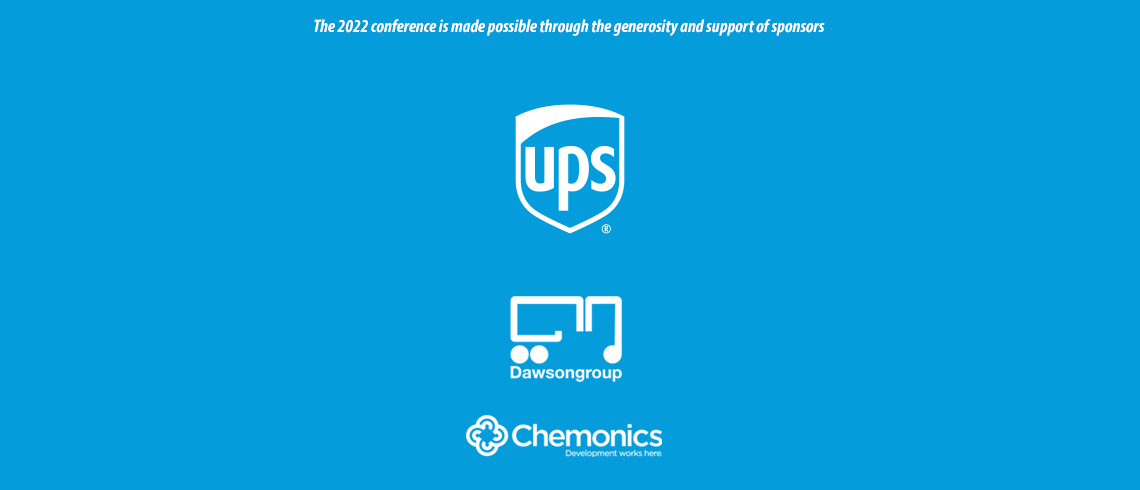Executive Summary
In the world of aid, development and disaster relief, the event’s key themes overlapped considerably. A core conclusion was that experience and perspectives exist in a wider ecosystem with significant organisational and business model dependencies.

The health and humanitarian sectors have exciting opportunities from technology that are opening. However, complexity and scale challenges changes needed to leverage better outcomes.
Sustainable procurement with an increasing local content was a recurring theme across all sessions. Claire Barnhoorn of Solvoz pointed to the opportunity to widen access to accredited suppliers through their platform, stressing the importance of making specifications relevant and accessible, and understanding the end-to-end cost of acquisition and deployment. Kuldeep Bandhu Aryal of Field Ready and BRAC told the story of developing the local supply of buckets in Bangladesh. The idea of moving the bucket moulds, and not the finished product, to save last mile costs, was a critical insight, as was the importance of a common specification.
Scott Dubin of the Global Health Fund highlighted the importance of outsourcing logistics correctly to gain value, and the right specifications and costing for capacity commitments. The diversity and fragmentation of the sector is a significant barrier to major change, but there is potential for 4PL (fourth party logistics) services; introducing platform collaboration and more advanced cost management in both primary logistics and the last mile; a point echoed by Frank van Gelder from Pharma.Aero.
Dr Rudi Pauwels introduced the mobile test lab developed by the Praesens Foundation – taking testing to field locations – avoiding dependency on transport for test samples and the movement of people. The Foundation has a stock of these specially fitted vehicles ready to go to difficult places – a key resource for health and humanitarian logistics.
The special topic on supply chain learning from Ukraine response highlighted the importance of collaboration. Sue Hodgson from Save the Children International explained the initial challenges of staffing shortages and having to quickly scale up operations where many international organisations were not registered. However, product and service availability were generally not a problem, but working under UK / EU contracts and expecting Ukrainian suppliers to abide by humanitarian principles was unrealistic.
Unsolicited donated products has been a big issue, and bonded warehousing was needed but not initially available; the Logistics Cluster played an important role on setting up storage. There was positive engagement with the Ukraine Government / Oblasts, and Amazon was a key partner to support deliveries; proving the future value to collaborate with a large commercial partner.
Colin Credle and Gordon Brown from Chemonics shared their experiences in delivering ARV supply chain support, highlighting the importance of good communications and effective risk management. Kat Sellers from Needs List found that data protection is a big problem and local organisations needed support with managing risks.
Dr Serhan Tuglular, Marmara University, with Prof Burcu Balcik, Ozyegin University shared perspectives and experiences in supporting dialysis treatments in Ukraine; providing dashboards and a user interface to visualise solutions. Andrew Lamb – Chair, Internet of Production Alliance found that Ukraine is/was a manufacturing hub for the world; they have maker spaces and fab labs across the country. He has been working to support mobile maker spaces in Ukraine. The Local Procurement Learning Partnership (LPLP), a thematic area of HLA to share lessons, is supported by the Internet of Production.
The challenges of supporting vulnerable communities in health and last mile contexts were emphasised by Judi Heichelheim of Chemonics and Andrew Parkes of Relief International. Constraints on capacity and freedom to operate collide with contexts such as scale, access, needs and inequalities. The risks are in making operations too complex alongside limited collaborative ‘good practice’ in the sector.
The final panel of the conference looked at technologies with the potential to transform the performance of the sector using ICT platforms and Apps, and Drones / UAVs. These developments are exploiting the now ubiquitous low-cost availability of ICT including in developing countries. The proportion of people with a handheld device continues to rise across the world and access to 3G and 4G as well as Wi-Fi has likely reached critical mass. The question was the extent to which technology can enable better outcomes for people and improved costs of its provision.
HHL2022
About the Conference Series
The Health and Humanitarian Conference series is organized each year by the Center for Health and Humanitarian Systems (CHHS) at Georgia Tech in partnership with INSEAD, MIT, and Northeastern University, with generous support from corporate and other organizational sponsors.
Stay Connected on:
Contact
- humlogconf (@) gatech.edu
- 755 Ferst Drive, Atlanta, GA 30332










